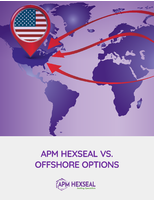Power Transmission Belt features antistatic design.
Press Release Summary:
Capable of maintaining static conductivity to ISO 9563 levels, Poly Chain® Carbon™ Volt™ Belt is engineered to minimize safety risks in explosive environments. Static-conductive fibers safely transfer static to carbon tensile cords and away from driven side of power transmission for safety in unstable settings. Polyurethane belt is suitable for use in volatile environments such as oil and gas refineries, chemical processing plants, and grain silos.
Original Press Release:
New Antistatic Power Transmission Belt from the Gates Corporation Provides Unmatched Safety in Volatile Environments
Gates Poly Chain® Carbon™ Volt™ belt is engineered to reduce safety risks in explosive environments by providing longer-lasting static conductivity.
DENVER, Colo. – The Gates Corporation, a global, diversified manufacturer of industrial and automotive products, today announced the release of its Poly Chain® Carbon™ Volt™ belt, a new antistatic polyurethane solution that meets the ISO 9563 spec and retains its static conductivity longer than comparable belts.
In accelerated lab testing of industrial belts from major manufacturers that meet ISO 9563, Gates experts found that their capacities to dissipate static severely diminished long before the typical end of functional life. Gates Poly Chain Carbon Volt belt, however, maintains static conductivity to ISO 9563 levels several times longer than its competitors.
Designed for use in volatile environments like oil and gas refineries, chemical processing plants, and grain silos, Gates Poly Chain Carbon Volt belt features patented static-conductive fibers that safely transfer static to carbon tensile cords and away from the driven side of a power transmission application for improved safety in unstable settings.
“Our customers have been clamoring for an antistatic version of our popular Poly Chain belt and we’re pleased to deliver it,” said Gates North America Synchronous Product Line Manager Taylor Jung. “All Gates belts go through an extremely rigorous testing process before we move them to production. During testing, we were surprised to learn that competitive belts met the ISO 9563 specification initially, but did not maintain the same level of conductivity over time, posing a possible threat in volatile environments. Poly Chain Volt belt users can be confident that it both meets the spec and stays conductive when it’s in use.”
Gates Poly Chain Carbon Volt belt offers increased safety along with the opportunity for higher horsepower, reduced drive size, and lower component costs. Currently available in standard sizes, Gates Poly Chain Volt belt can also be made to order.
Learn more about Gates Poly Chain Carbon Volt belt at gates.com/volt.
About The Gates Corporation
The Gates Corporation is a global, diversified industrial company that provides advanced power transmission and fluid transfer solutions by engineering products and services that reduce the total cost of ownership for a wide variety of applications. Our products and services serve customers in five key end market segments: Energy/Exploration/Extraction, Infrastructure & Agriculture, Transportation, Automotive, and Process & Specialty.
As an engineering leader with a strong foundation in research and development, Gates is committed to advancing the science of motion performance by developing safe, forward-thinking products, services, systems, and solutions, as well as fostering long-term customer and employee relationships. Headquartered in Denver, Colorado, Gates employs over 14,000 people across 106 locations in 30 countries.
If it moves you, there’s a good chance Gates has a part in it. Gates. Powering Progress.




